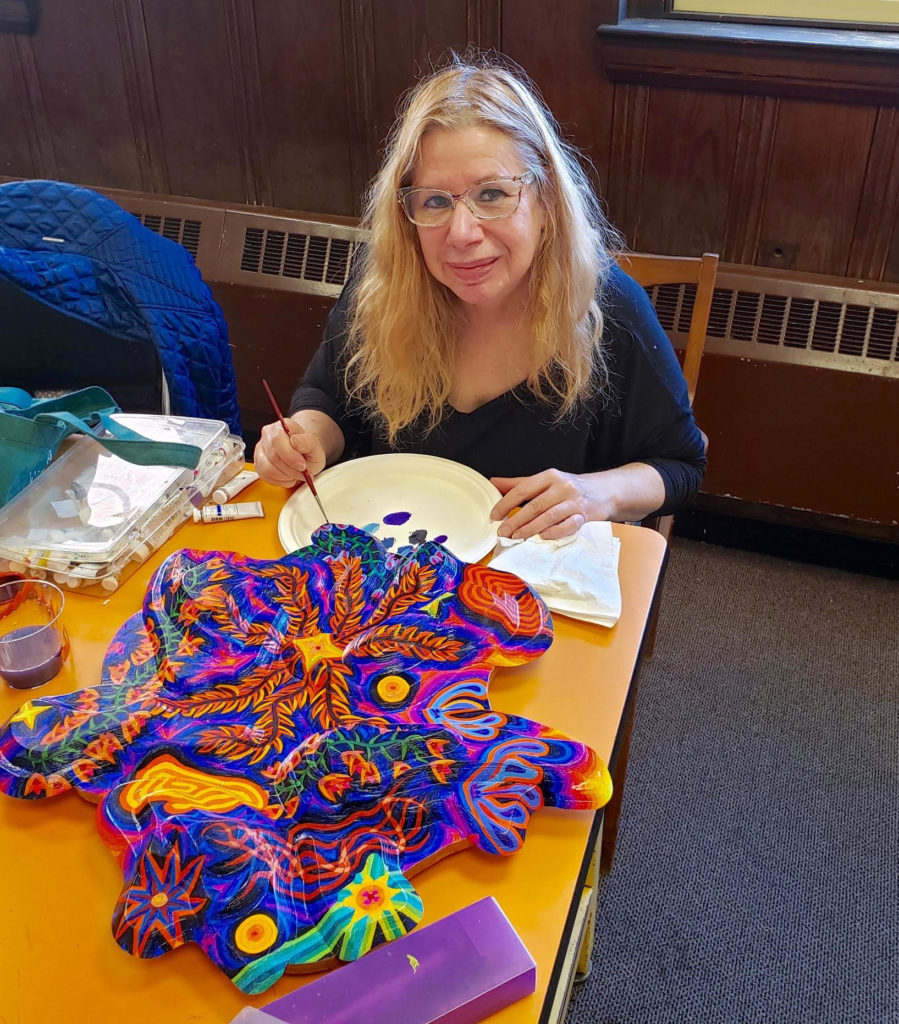
This is our opportunity to start from the ground up
For the fourth interview in this series asking people active in the Boston arts scene about their thoughts on how to rebuild it after the pandemic, I talked to artist and longtime gallerist Marjorie Kaye—a painter and sculptor from north of Boston who is founder and director of Galatea Fine Art, a gallery in the Hub’s SOWA Art and Design district. Check out the video of our full conversation below.
On what has gone before
Boston has great institutions of learning and world-class museums. That goes for the entire state of Massachusetts, as well. However, the needs of its artists have gone unnoticed and, worse, not deemed important. Patrons scurried to New York City to buy artwork and largely ignored what is right under their collective noses. However, if the museums invested just 5% of their exhibition space to the myriad of artists in their own community, it would be like the domino effect: Investors, patrons, etc. would recognize the importance of the universe artists have constructed right around them. And that would have a major effect on the health and well-being on Boston’s gallerists as well.
On what is still to come
We have an enormous opportunity to open the floodgates to the inspiration of the very varied and devoted artists in our community. Although the perception of art as a commodity is not going to disappear because of the pandemic, I believe that the experience of creating the work in isolation, without any means other than the work itself (exhibitions cancelled, not knowing what the future will bring) has jump-started a kind of renaissance in the Boston area, of innovation and vision. … People found that the art community was essential to their well-being during the period of isolation resulting from the pandemic. This should not be forgotten. The city of Boston has enormous potential to ensure that the art community not only reestablishes itself, but thrives and evolves into a world-class arts destination. Opening up more studio spaces, expanding opportunities for exhibitions and outreach, changing the tide of how investors and buyers see the Boston artists are only the beginning steps in nurturing our creative economy. The process begins with education. Reverse the trend of discontinuing art in the education system. Start opening young minds. Not only would the value of the arts be established on a deep level, but also that of other systems of thought and exploration, such as philosophy and the humanities. This is our opportunity to start from the ground up.
DigBoston interview with Marjorie Kaye
Jason Pramas is executive editor and associate publisher of DigBoston. He holds an MFA in visual arts and has been represented by Galatea Fine Art in the past.